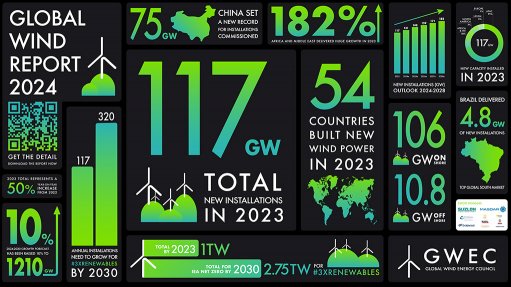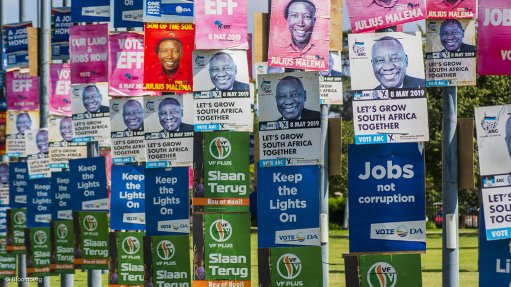Provisional antidumping duties slapped on wheelbarrows
On March 6, the South African Revenue Service (Sars) informed of the imposi- tion of a provisional antidumping payment (duty) in respect of the alleged dumping of wheelbarrows, classifiable under tariff subheading 8716.80.10 and originating in or imported from the People’s Republic of China.
The antidumping duties are imposed from March 6 up to and including September 4 (that is, for a six-month period). The rates of the antidumping duty differ, depending on whether the wheelbarrow is manufactured by Qingdao Youhe, in which case the rate will be 32.32%, by Qingdao Wantai (29.82%) or by companies other than Qingdao Yongyi, Qingdao Youhe and Qingdao Wantai (29.82%).
Imports from Qingdao Yongyi are not subject to an antidumping duty, as there are two company-specific rates of duty and three company exclusions from the residual antidumping duty. Can you identify the second reason? As a tip, consider the residual antidumping duty, which is the duty that applies to all companies that have not been part of the investigation. There could be numerous reasons for their lack of participation.
The antidumping investigation was initiated by the International Trade Administration Commission of South Africa (Itac) in a notice in the Government Gazette of June 20, 2014, following an application lodged by Lasher Tools. The allegation of dumping was based on the comparison between the normal value and the export price.
According to the notice, Lasher Tools was unable to obtain a domestic selling price in China. Therefore, in terms of the provisions of the record of understanding, which the South African government concluded with its Chinese counterparts, Lasher Tools nomi- nated Zimbabwe as an appropriate third country to determine the normal value and obtained the cooperation of a manufacturer in Zimbabwe. The normal value for China was based on a quotation provided by the cooperating manufacturer in Zimbabwe. The export price for China was determined based on official Sars statistics. An adjustment for transport was made to the free-on-board import price to calculate the ex-factory export price.
The dumping margin for China was determined to be 505.33%. On this basis, Itac found that there was prima facie proof of dumping. Lasher Tools also submitted evidence that it was experiencing price undercutting and price suppression. It also submitted evidence of declines in market share and profit. It further submitted information to indicate a decline in growth and an inability to raise capital investment. On this basis, the commission found that there was prima facie proof of material injury and causal link.
Itac indicated in the notice that the period of investigation for purposes of determining the dumping in the exporting country of origin would be from February 1, 2013, to January 31, 2014. The period of investigation for purposes of determining material injury would be from July 1, 2010, to January 31, 2014.
One would have expected that a company (Qingdao Youhe, to be exact) would have been afforded a lower rate of duty than the residual duty. This was not the case because the adjustments that the company provided could not be justified, and Itac relied on the best available information in calculating the residual dumping margin. If Qingdao Youhe had relied on outside assistance, this could, no doubt, make for an interesting interaction.
With the publication of the duty, an Itac report will now be issued and interested parties (everyone who participated in the investigation) will be provided with the opportunity to provide their comments, which Itac will then consider in the finalisation of its recommendation to the Minister of Trade and Industry. With the duty being imposed until September 4, one would expect that the final (definitive) antidumping duties would be imposed before that date. Should this not happen, the provisional antidumping payments (duties) would lapse. In such an instance, importers in the Southern African Customs Union (Sacu) region would then be able to reclaim any provisional antidumping duties that had been paid.
Battery Scrap
The Department of Economic Development published ‘Proposed Export Control Measures on the Exportation of Scrap Batteries: 8548.10’ in the Government Gazette of March 6, 2015. Comment on the proposed measures is due by March 27. You will recall that Itac has in the past published export guidelines for waste and scrap metal, as well as subsequent amendments. Comments were invited on the proposed introduction of export control measures in terms of Section 6 of the International Trade Administration Act, 2002, on waste and scrap of primary cells, primary batteries and electric accumulators, spent primary cells, spent primary batteries and spent electric accumulators of tariff subheading 8548.10.
Public Officer Rule
On March 6, Sars informed of the amendment of sections 59A and 64 of the rules of the Customs and Excise Act, 1964 (secondary legislation), which serve to include a public officer appointed under section 246 of the Tax Administration Act, 2011.
Rule 59A.03(1)(a)(ii)(bb) has been amended to read: “(bb) a juristic person that has a place of business at a specific physical address in the Republic, a representative of that juristic person duty authorised by that juristic person to apply, and, if a company, may include a public officer appointed by the company and approved by Sars in terms of Section 246 of the Tax Administration Act, 2011 (Act No 28 of 2011).”
Rule 60.03(2)(a)(ii) has been amended to read: “(ii) a juristic person that has a place of business at a specific physical address in the Republic, a representative of that juristic person duty authorised by that juristic person to apply, and, if a company, may include a public officer appointed by the company and approved by Sars in terms of section 246 of the Tax Administration Act, 2011 (Act No 28 of 2011).”
Customs Act Workshop
On March 2, Sars announced the postponement of its workshop scheduled for March 27 to April 23. It will still be held from 10:00 to 12:00 in the auditorium on the 2nd floor of Sars’ Linton House, 570 Fehrsen street, Brooklyn Bridge, Brooklyn, Pretoria. To attend, you need to confirm your attendance by April 16.
Glass Sunset Review
Comment on the sunset review investigation on clear float and drawn glass originating in or imported from the Republic of China and India is due by Apri, 1. The application was lodged by PFG Building Glass, the only producer of clear float in the Sacu region.
Comments
Press Office
Announcements
What's On
Subscribe to improve your user experience...
Option 1 (equivalent of R125 a month):
Receive a weekly copy of Creamer Media's Engineering News & Mining Weekly magazine
(print copy for those in South Africa and e-magazine for those outside of South Africa)
Receive daily email newsletters
Access to full search results
Access archive of magazine back copies
Access to Projects in Progress
Access to ONE Research Report of your choice in PDF format
Option 2 (equivalent of R375 a month):
All benefits from Option 1
PLUS
Access to Creamer Media's Research Channel Africa for ALL Research Reports, in PDF format, on various industrial and mining sectors
including Electricity; Water; Energy Transition; Hydrogen; Roads, Rail and Ports; Coal; Gold; Platinum; Battery Metals; etc.
Already a subscriber?
Forgotten your password?
Receive weekly copy of Creamer Media's Engineering News & Mining Weekly magazine (print copy for those in South Africa and e-magazine for those outside of South Africa)
➕
Recieve daily email newsletters
➕
Access to full search results
➕
Access archive of magazine back copies
➕
Access to Projects in Progress
➕
Access to ONE Research Report of your choice in PDF format
RESEARCH CHANNEL AFRICA
R4500 (equivalent of R375 a month)
SUBSCRIBEAll benefits from Option 1
➕
Access to Creamer Media's Research Channel Africa for ALL Research Reports on various industrial and mining sectors, in PDF format, including on:
Electricity
➕
Water
➕
Energy Transition
➕
Hydrogen
➕
Roads, Rail and Ports
➕
Coal
➕
Gold
➕
Platinum
➕
Battery Metals
➕
etc.
Receive all benefits from Option 1 or Option 2 delivered to numerous people at your company
➕
Multiple User names and Passwords for simultaneous log-ins
➕
Intranet integration access to all in your organisation


















